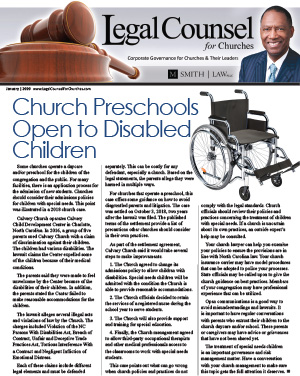Risk management for church boards comes with the responsibilities to minimize threats to the ministry. It is important that church leaders recognize and reduce the perils that can harm the church.
Churches are confronted with some of the same challenges as other types of organizations. These risks can disrupt the operations, pose legal liabilities and damage the church’s reputation. Being a church or nonprofit religious organization does not lessen the need to be diligent in risk management matters.
The reason why this article focuses attention on church directors is the board members of all organizations share a fiduciary duty of care. Courts have ruled that this means that directors should act reasonably. The standard of care for church boards is the same as that for Fortune 500 Companies’ directors.
The church board should contemplate a plan to address the exposures to all risks. Here are some areas of risks that face churches.
DATA MANAGEMENT
If a church has member records, it faces data management risks. This situation is elevated if the church uses online services, transmit information via the Internet or keeps records on a computer. Data thieves are poised to exploit vulnerable systems and steal confidential data.
Churches have a duty to safeguard the information they hold for members. To this end, the church should employ steps to avoid data leaks from human errors or an external data breach. Such an event can be legally, financially and publicly damaging.
NEGLIGENCE
Churches are particularly susceptible to a negligence claim. Church facilities are open to the public. Members and visitors could be injured in multiple ways. The church owes
a limited duty to ensure its facilities and grounds are safe.
Church leaders should have policies and procedures in place to look for hazards that could result in injury on church property.
VENDOR DUE DILIGENCE
Many churches use vendors to provide services. Church leaders should vet vendors carefully to ensure they have adequate qualifications, skills and resources to perform. Vendor due diligence is critical because sometimes a vendor’s mistake can lead to liability for the church. Vendors should be carefully considered before hiring and periodically reviewed afterwards.
GOVERNANCE PRACTICES
We often write about the importance of sound corporate governance for churches.
Effective governance is important for efficiency and legal compliance. Strong governance is also a way to mitigate risks. Church leaders who focus on good governance help reduce the liability of making procedural errors.
Risks exists for all churches and their governing boards. A sound system of recognizing and minimizing risks is an important governance responsibility. Take a close look at the way your church does business. Making improvements can be the difference between suffering from risks and protecting your church.

